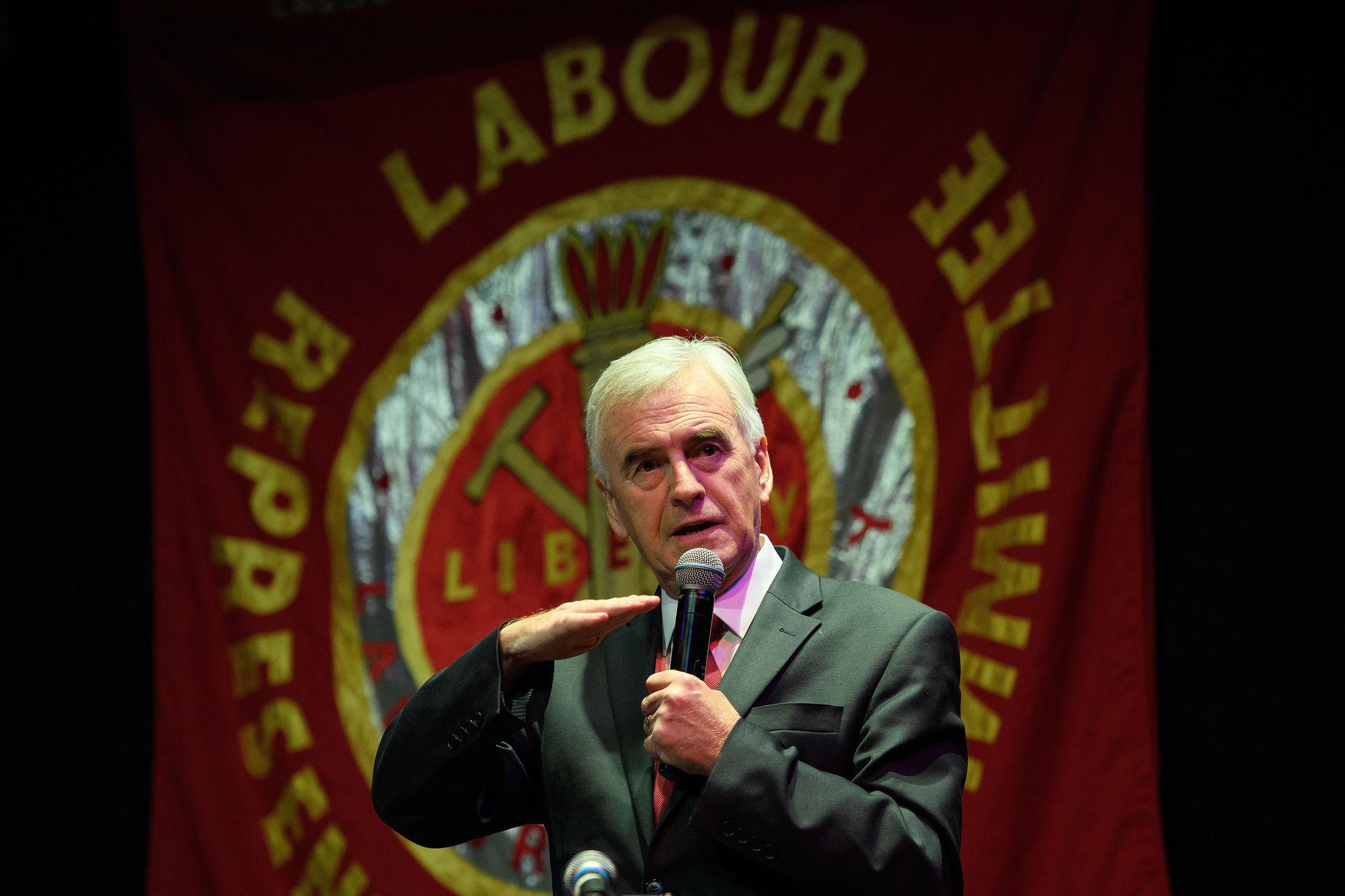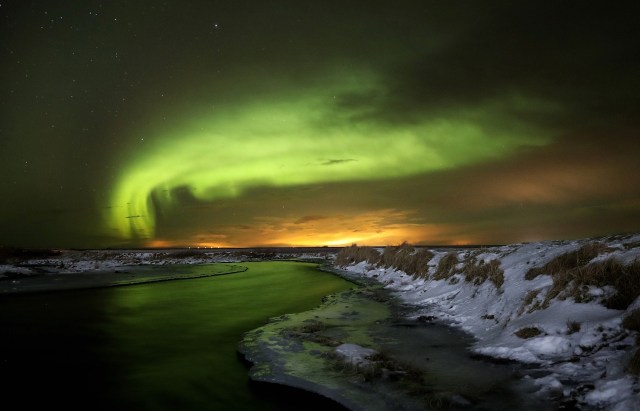The Northern Lights brought an epiphany for Graeme Archer. Credit: Owen Humphreys/PA Wire/PA Images

We were standing in a field, freezing cold, with about two hundred other tourists, in the middle of the night, in the middle of (Icelandic) nowhere. “Oh come on”, we thought. Fingers and toes painful with the below-zero temperature; frost pellets in my beard. We’d been here half an hour, staring at the sky, seeing … nothing. “Just” the stars; just the entire Milky Way, spread out for our pleasure. But this is not why we’d driven all this way. Not why we’d paid to be driven all this way, to be accurate: surely, the voice of doubt began to whisper, this is just a con, to subtract expensive kroner from gullible tourists’ wallets.
But then. Oh, then. A mist started to coalesce in the heavens — as much like the appearance of the creature in Night of the Demon as anything: something substantive in front of our eyes, formed from nothing. Some of the watchers screamed, and “Oh come on”, I thought again, it’s not that great, just a bank of what could be a grey, pulsating rain-cloud, hanging loose and low in the dark sky.
But again: another convulsion! And suddenly the cloud snapped tight, like a sheet pulled taut, and everyone was screaming. We ran from one side of the field to the other, chasing the aurora’s flight and pointing, shouting aloud its movements. It swirled and reshaped itself, a non-verbal message to the planet: pick your eyes from the ground! Look at the sky, man! The northern lights danced their fizzing, silent dance for us; for a moment, just a moment, the universe noticed our presence, and told us: “This matters.”
We rolled back to Reykjavik in the bus, everyone silent. I thought: I will never waste another day of my life.
The next day I stared at the Íslendingabók – the Book of Iceland, which describes the 9th century settlement of this astonishing country – in the National Museum. No matter that I can’t read a word of 12th century Icelandic: the beautiful pages spoke to me. A touch of the aurora’s magic remained: “This [story we tell of ourselves] matters”.
It was a shock to return to London: noisy, messy, polluted, crowded London, a city which simply doesn’t work any more. Worse was to switch on my Twitterfeed. Here on social media is the Book of Our Land, a rolling screed of words, more words than the Íslendingabók every minute of every day.
And how do we choose to use them? To screech at one another, like ravens scrapping over a rancid sandwich wrapper. The first thing I read was that the Labour Party’s candidate for Chancellor of the Exchequer, John McDonnell — the ideological strongman of the Corbyn revolution, which has destroyed the moderate Left in the UK and threatens to become our government with every whimpering, pathetic half-measure of the May mal-administration — had been caught on tape. Mr McDonnell suggested, at a meeting of like-minded left-wingers, that a Conservative MP, Esther McVey, should be lynched.

Disgusting enough. But how to measure the disgust required to describe the BBC producer, who had this tape in his hands, but decided not to air it. We have reached the stage in our national discourse where a significant portion of the British population cheers a man who would hang his opponents by their necks, until they are dead — I don’t see anything in McDonnell’s demeanour or history to suggest this is a metaphor — and where the BBC is so terrified of its coming Marxist overlords that it cravenly suppresses the evidence. Esther McVey? She’s only a Tory, after all. Not quite human.
The difficult trick for those who cling to civilisation is to describe the horrors of the age — prepubescent children being lined up for gender reassignment surgery; talk-show hosts and their presidential ambitions (because that’s what Trump voters really want: Mrs Clinton with a better autocue manner); the tedious grind of trade negotiations between Britain and a sclerotic bloc of grey functionaries; the psephological insanity of our young (their bizarre, terrifying willingness to elect those Marxists-who’d-lynch) — to describe all this, without sounding insane.
The Book of Iceland tells a history of harshness, and savagery, and survival, and hope, but tells it with beauty and completeness. The Book of the West today, though — think how future historians will discuss us. They’ll read our electronic hate-diaries and wonder at our tales of harshness, and savagery, written by a people who seem to have rejected beauty in their built environment, in their “music”, and especially in their words, and who don’t even aim for completeness in their story-telling, but spew their venom within hermetically-sealed echo chambers. Night of the demon(s), indeed.
Our politics — the story we tell of ourselves — is drowning in demon-venom; hating each other seems more important than tending the scrap of rock that sustains us, and upon which our grip is so fragile. We can’t even get rid of plastic bags. Please, universe: take notice of us again. Send some light to illuminate our words, to remind us that there’s more to life than staring at our phones and waiting for death — either our own, or that of our opponents.










Join the discussion
Join like minded readers that support our journalism by becoming a paid subscriber
To join the discussion in the comments, become a paid subscriber.
Join like minded readers that support our journalism, read unlimited articles and enjoy other subscriber-only benefits.
Subscribe